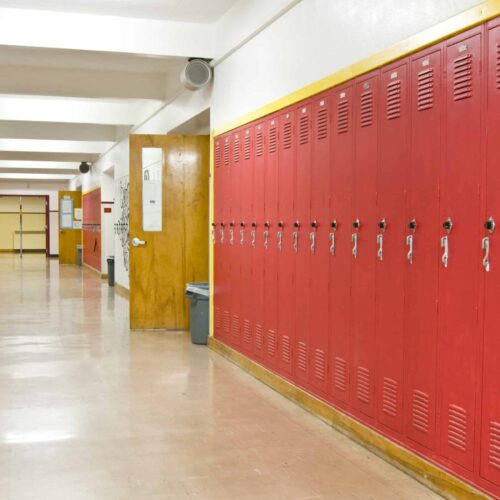Introduction
Once Virginia schools begin in-person teaching again, educators and school resource police will have to follow two new laws aimed at stopping the criminalization of children’s behavior at school — legislation inspired by Center for Public Integrity reporting.
One law passed this year prohibits charging students with criminal disorderly conduct during school or at school-sponsored events. The other, approved in March, restores discretion to principals to decide when to alert police if student conduct could be considered a misdemeanor. Educators interpreted past law to require them to report any incident.
The laws were passed after a 2015 Public Integrity investigation, which found Virginia’s rate of student referral to law enforcement was about three times the national rate. Nationally and in Virginia, Black and Latino students and children with disabilities were disproportionately referred, the analysis showed. The trend in criminalizing discipline in schools is referred to as “the school-to-prison pipeline.”
Personal stories about kids charged with disorderly conduct for “ridiculous things” convinced lawmakers that policing in schools had gone awry, said Virginia state Sen. Jennifer McClellan, a Democrat who sponsored the bills.
“Your story highlighted the autistic sixth grader who was sent to the principal’s office and kicked a trash can,” McClellan said.

McClellan referred to Public Integrity’s story of Kayleb Moon-Robinson, then an 11-year-old sixth grader in Lynchburg, Virginia. A school resource officer charged him with disorderly conduct for kicking a trash can. Later, Kayleb, who is diagnosed as autistic, left class without permission, and the same officer grabbed him and wrestled him to the floor. The officer handcuffed Kayleb, took him to juvenile hall and charged him again with disorderly conduct and felony assault on a police officer.
Public Integrity documented other cases of middle-school kids charged with disorderly conduct for simply shoving and yelling.
Policing that’s replaced counseling and other support for students has fallen overwhelming on kids of color and with special needs, Public Integrity found in Los Angeles and San Bernardino, California, and Tennessee. Research shows that early brushes with the criminal justice system increase the risks that children will get pulled into real crime later.
Public Integrity’s report focusing on Virginia led to campaigns to absolve Kayleb, and some school districts adopted new limits on policing. The governor’s office began a “Classrooms not Courtrooms” training initiative for police and educators. McClellan began shaping legislative solutions and working with the Virginia Legal Aid Justice Center to document additional stories of kids charged with disorderly conduct for as little as cutting in line.
Legislators started with marginal reforms, including a bill in 2016 allowing students charged with disorderly conduct to present special-needs behavioral assessments in their defense. McClellan said a prosecutors’ group initially opposed her bill to prohibit charging students with disorderly conduct. But she worked to gain prosecutors’ support, pointing out that police can apply other charges if a student commits a real crime, such as brandishing a weapon. The bills began moving forward after Democrats took over as the majority in the state legislature in 2019.
Read more in Inside Public Integrity
Watchdog newsletter
Capitol attack underscores white supremacist infiltration of police, military
Watchdog newsletter
Words matter: Was the attack on the Capitol a rally, protest or insurrection?
The question remains how history will record the events that resulted in mayhem at the U.S. Capitol.


Join the conversation
Show Comments